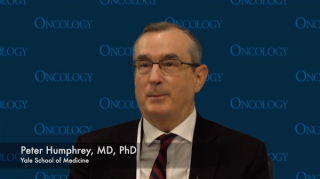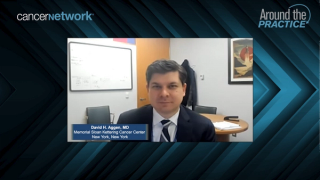
Kidney Cancer
Latest News

Latest Videos

CME Content
More News

Recommendations regarding how to use novel combinations such as lenvatinib and everolimus, or lenvatinib plus pembrolizumab as frontline therapy for metastatic renal cell carcinoma.
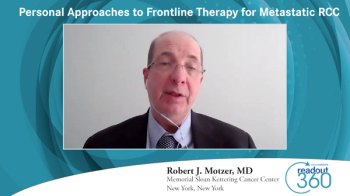
Treatment-related adverse events to be mindful of when treating patients with metastatic renal cell carcinoma with a TKI/IO regimen, such as lenvatinib and pembrolizumab, in the frontline setting.

Robert J. Motzer, MD, of the Memorial Sloan Kettering Cancer Center, discusses the rationale for studying lenvatinib plus pembrolizumab or everolimus for frontline metastatic renal cell carcinoma treatment and reacts to outcomes of the phase 3 CLEAR study as presented at ASCO GU 2021.

Drs Toni Choueiri and Robert J. Motzer discuss factors that impact their decisions for treatment of metastatic renal cell carcinoma in the first-line setting and highlight their go-to regimens.

Toni Choueiri, MD, of the Dana-Farber Cancer Institute, comments on the impact of emerging data presented on newer, novel combination therapies as upfront treatment for patients with metastatic renal cell carcinoma.

Drs Toni Choueiri and Robert J. Motzer reflect on recent data supporting the use of TKI/I-O combination regimens for frontline treatment of metastatic renal cell carcinoma.

The FDA accepted a new drug application for belzutifan to treat von Hippel-Lindau disease¬–associated renal cell carcinoma and granted it priority review based on response rate results from a phase 2 trial.
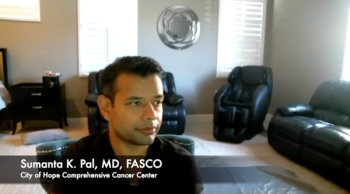
Pal detailed the plan for the CONTACT-03 study and what the research team hopes to see with the data.

The expert from SUNY Downstate Medical Center spoke about areas of research for renal cell carcinoma which he believes deserve further attention.

Based on results of the phase 3 TIVO-3 trial in patients who have previously received at least 2 lines of therapy for renal cell carcinoma, the FDA granted approval to tivozanib for use in this patient population.
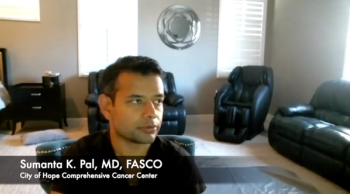
Pal discussed the emergence of cabozantinib as a treatment option for patients with renal cell carcinoma and touched on future research around the drug.
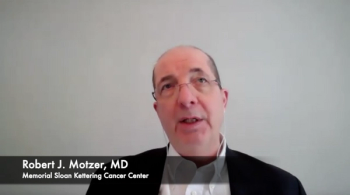
The medical oncologist at Memorial Sloan Kettering Cancer Center discussed areas of research in renal cell carcinoma that he thinks should be further explored.
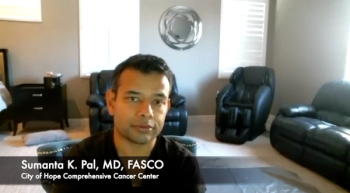
Pal detailed the phase 2 trial of lenvatinib at 2 starting doses plus everolimus to treat patients with renal cell carcinoma.
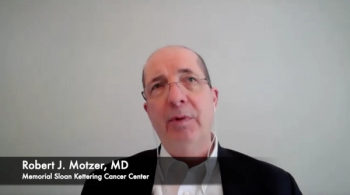
The medical oncologist at Memorial Sloan Kettering Cancer Center explained how this trial of MK-6482 plus lenvatinib versus cabozantinib in patients with advanced clear cell renal cell carcinoma could possibly improve the standard of care in this setting.
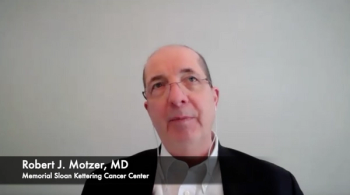
The medical oncologist at Memorial Sloan Kettering Cancer Center highlighted what clinicians treating patients with advanced ccRCC should understand about this trial in progress.

The expert from SUNY Downstate Medical Center highlighted areas in which he believes treatment for renal cell carcinoma will advance.

An analysis revealed that as a third- or fourth-line treatment for advanced renal cell carcinoma, tivozanib significantly increased Q-TWiST compared with sorafenib, primarily through an increase in TWiST.
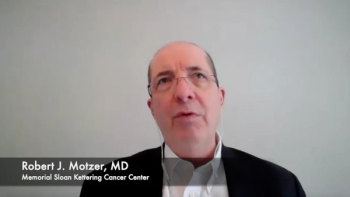
The medical oncologist at Memorial Sloan Kettering Cancer Center discussed the significance of the phase 3 CheckMate 9ER study results.

An analysis revealed that as a third- or fourth-line treatment for RCC, tivozanib significantly increased Q-TWiST compared with sorafenib, primarily through an increase in TWiST.

“These updated results from the phase 2 MERECA trial underscore the positive impact on overall survival that ilixadencel may achieve for [patients with kidney cancer],” said Sven Rohmann, MD, PhD.
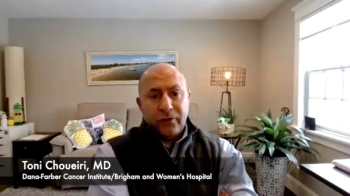
In the phase 3 CheckMate 9ER trial, investigators found that nivolumab plus cabozantinib demonstrated improved efficacy and prolonged survival among patients with previously untreated advanced renal cell carcinoma.
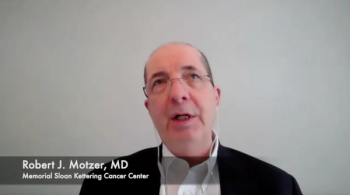
In the CheckMate 9ER trial, investigators compared combination treatment with nivolumab and cabozantinib versus sunitinib in patients with previously treated advanced renal cell carcinoma.

Follow-up data published in the European Association of Urology did not find a significant improvement in overall survival for patients with locally advanced renal cell carcinoma undergoing adjuvant pazopanib treatment.

A Q-TWiST analysis evaluated the use of tivozanib versus sorafenib among patients with advanced renal cell carcinoma included in the phase 3 TIVO-3 study.
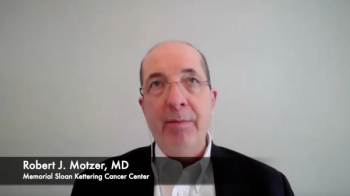
Investigators compared lenvatinib plus either pembrolizumab or everolimus versus sunitinib in patients with advanced renal cell carcinoma in the CLEAR trial.










